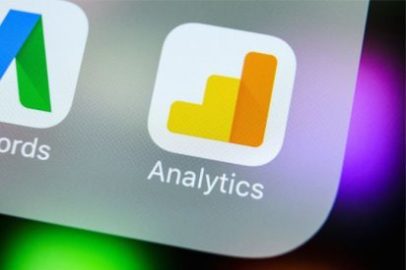There is a lot of work behind running a successful website: First, a comprehensive concept must be created and implemented to be visually appealing, then the right hosting environment has to be found. Once the basic framework is in place, the creation and presentation of high-quality, unique content come onto the agenda.
With marketing campaigns and good rankings in search engines, visitors are finally won for your web project. It would make sense to measure the effect of individual measures such as SEO, ad placement or links. Web analysis tools are responsible for this, which collect comprehensive data on the behavior of Internet users. Google Analytics is the best-known and most used of them.
Also Read: Google Pixelbook 12in
What Is Google Analytics Exactly?
Google Analytics is a website analysis tool. The original underlying method called “Urchin Tracking Monitor” comes from the Urchin Software Corporation, which was taken over by Google Inc. in 2005. It is based on different cookies that record additional information about website visitors’ behavior. By evaluating this data, precise statistics are then created that provide the website operator with answers to the following questions:
- How many users visited the website or each page in a given period?
- How much time did visitors spend on the website or each page?
- Did the visitors land on the page from the search results of Google, another search engine, or another website?
- Are they users from your region, other parts of the country, or abroad?
- How many users made a conversion (purchase, download, login, register, click on an ad, etc.)?
- At what point did visitors leave the website?
In this way, the analysis tool creates comprehensive user profiles of the visitors. Since Google reserves the right to store all the data it collects on its servers in the USA and can even assign specific people to the user profiles if they use a Google service that requires registration, analytics is controversial regarding data protection law. You can read more about this topic in our guide to possible alternatives to Google Analytics.
Also Read: Google Home Max White
How Do Website Operators Benefit From Google Analytics?
The visitor data collected offers you, as a website operator, a first-class opportunity to check the effectiveness and quality of your content. At the same time, you will also receive feedback on the functionality of your advertising campaigns. For example, suppose you link your Google AdWords account to Analytics. In that case, you can easily filter out which keywords are achieving the desired success and where you should still adjust or optimize your campaign. Based on the delivered values for the length of stay and the moment the visitor jumps off, you can see which pages work better and which work less well.
Combined with information about the users’ paths to the respective page, you get a precise picture of functioning links and strong content and content that needs improvement. Finally, the Google Analytics tracking data on the geographic origin of your visitors should reflect your marketing goals: For example, for a business that only has a limited catchment area, it is disadvantageous if the majority of website visitors are regionally scattered and hundreds of kilometers away remotely located. However, if the statistics show the same result for an online shop that sells throughout , you, as the operator, know that you are on the right track.
How To Set Up Google Analytics For Your Web Project
To use Google Analytics for your website, your online shop, your app or your social media channels, you can either open an independent account at http://www.google.com/analytics/or link your existing AdWords account with the link service. The tracking tool is under the “Tools and Analysis” tab. In the menu, you set properties – a website, an app, a shop etc. – and define which users should access the data views. If you want to get insights about a specific conversion, set a goal. You can choose from the following five goal types:
- Target: a particular URL is loaded
- Duration: Sessions that have exceeded a certain amount of time
- Event: a defined action, such as playing a video or clicking an ad, is triggered
- Smart Goals: are determined based on the top visits ranked by analytics and serve as a metric for a conversion
Once you have set up the tool according to your plans, finally integrate the Google Analytics tracking code into your web project. For this purpose, you can use Google Tag Manager, which is especially recommended if you also add other tags to your web presence. If you only use the analytics tracking code, manual integration directly into your pages’ HTML code is also possible.
There are also helpful modules for content management systems, such as WordPress or Drupal, which integrate the code according to the system’s requirements. If you want to track an app, you need Google Analytics SDK for Android or iOS. You can get this through your account at the same place where the tracking code is provided. Alternatively, you can download the Google Tag Manager for Mobile SDK for Android or iOS.
Also Read: Seven Benefits Of Using Technology In Digital Marketing

